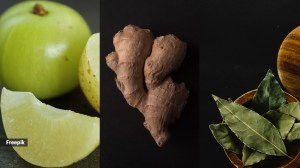Dawood blacklist moves to UN, Pak gets reminder
Not only does the US decision to name Dawood Ibrahim as a ‘‘global terrorist’’ — first reported in The Indian Expre...

Not only does the US decision to name Dawood Ibrahim as a ‘‘global terrorist’’ — first reported in The Indian Express — decisively change the complexion of its relationship with India but it also brings Washington face to face, for the first time publicly, with ally Pakistan’s covert help to terrorism.
The US this morning presented the Dawood Ibrahim designation to the UN 1267 Sanctions committee in New York and began talking to a variety of governments in the Gulf, notably the UAE, where Ibrahim is believed to also live and possess a number of properties.
The UN will now ask its member states to cooperate in freezing Dawood’s assets wherever possible, thereby crippling his network of terror.
Diplomats here pointed out that Dawood’s designation would spur cooperation between India and the US on common sources of terror. Such as in Afghanistan, where the fight against the Al-Qaeda and the Taliban often has a concomitant spillover into India.
Deputy Prime Minister LK Advani said that declaration of Dawood Ibrahim as a ‘‘global terrorist’’ vindicated India’s stand and now the facts were there for the world to see.
Describing it as a ‘‘major development,’’ Advani said its full implications were being examined: ‘‘I have spoken to the External Affairs Ministry in this regard.’’
India’s High Commissioner to Pakistan Shiv Shankar Menon met Advani and discussed the latest development.
Emerging after a 30 minute meeting, Menon said that the ‘‘whole relationship’’ with Pakistan was discussed, which included the Dawood issue and its implications. He said he had come here for ‘‘normal consultations’’ and Advani gave him ‘‘guidance’’ on his job.
The MEA also welcomed the US naming of Dawood. ‘‘We renew our demand to the government of Pakistan to hand him over to India so that he can be prosecuted for the crimes committed by him. We also appeal to other states to disallow him transit or relocation from his current residence,’’ the MEA spokesperson said.
Pakistan Deputy High Commissioner Munnawar Bhatty was summoned to the Foreign Office and again told that Islamabad must hand over Dawood Ibrahim to India.
On President Musharraf’s denial of Dawood’s presence in his country, Advani said this ‘‘negative attitude’’ was because India had been raising the issue in a very strong manner.
He said the government had some idea ‘‘that the Treasury department was thinking in this direction, and we have been pursuing our case from our side ever since Musharraf came here.’’
Clearly, the designation is the result of very close and painstaking cooperation between the top leaderships in India and the US, as well as the law-enforcement agencies on both sides. New Delhi’s emphasis on the linkages between Dawood and Osama bin Laden is believed to have finally tilted the balance.
Interestingly, the fact sheet on Dawood on the website of the US Department of Treasury (www.treasury.gov) sounds as if it were written after close consultations with New Delhi.
‘‘Dawood Ibrahim, the son of a police constable, has reigned as one of the pre-eminent criminals in the Indian underworld for most of the past two decades,’’ the fact sheet says.
‘‘Ibrahim’s syndicate has consistently aimed to destabilise the Indian government through inciting riots, acts of terrorism and civil disobedience. He is currently wanted by India for the March 12, 1993 Bombay Exchange bombings, which killed hundreds of Indians and injured over a thousand more. Information, from as recent as Fall 2002, indicates that Ibrahim has financially supported Islamic militant groups working against India, such as Lashkar-e-Tayyiba (LeT)’’ the fact sheet adds.
The link between Dawood and bin Laden is also manifest on the website. ‘‘Ibrahim’s syndicate is involved in large-scale shipments of narcotics in the UK and Western Europe. The synidcate’s smuggling routes from South Asia, the Middle East and Africa are shared with Usama bin Laden and his terrorist network. Successful routes established over recent years by Ibrahim’s syndicate have been subsequently utilised by bin Laden. A financial arrangement was reportedly brokered to facilitate the latter’s usage of these routes. In the late 1990s, Ibrahim travelled in Afghanistan under the protection of the Taliban,’’ the fact sheet adds.
Photos


- 01
- 02
- 03
- 04
- 05





























